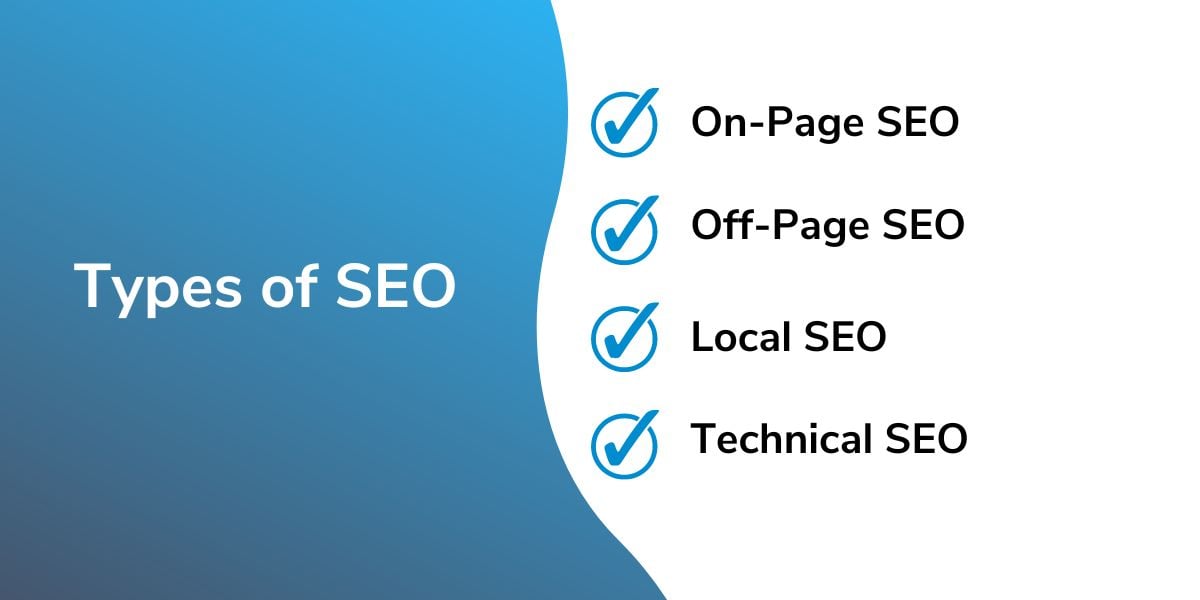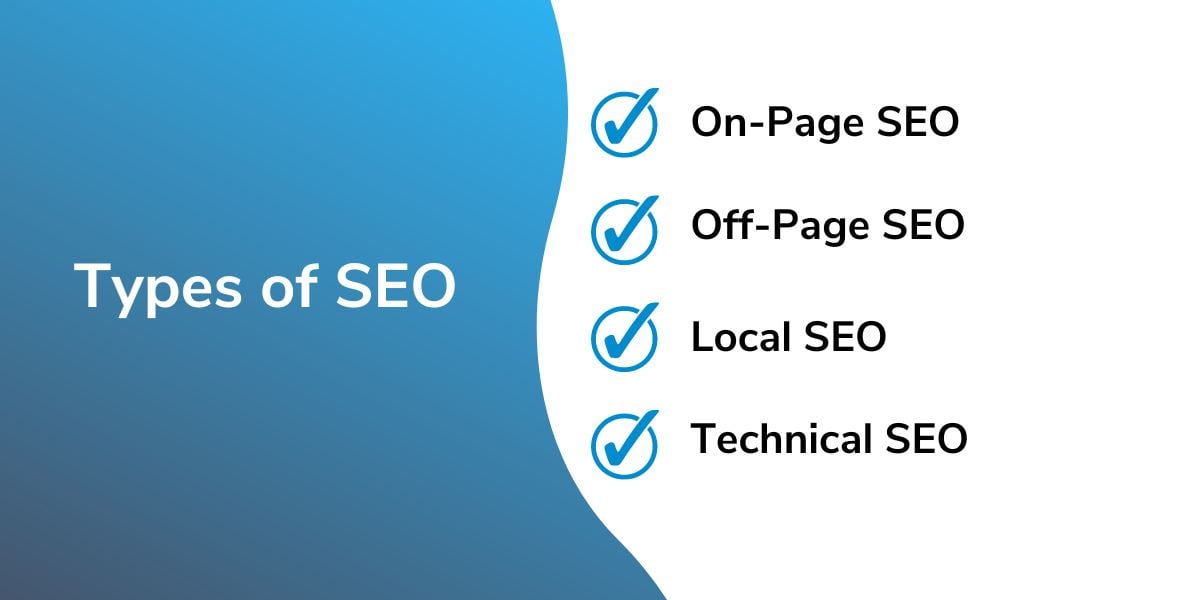Is SEO Still a Thing in 2024?
December 5, 2023 •Chris Gabryszewski

Having an effective SEO strategy is still the best way to reach a digital audience in 2024. Think about it this way: when you have a question, where do you turn to? Chances are, you start with a Google search. And, if you’re like 75% of other searchers, you stay on the first page of results.
To get your business seen at all, you need an SEO strategy in 2024 that puts your readers first. In this article, we show you how. Let’s dive in!
What Is SEO and How It Works?
Search engine optimization (SEO) refers to the process of improving your website and content to rank higher on search engine results pages (SERPs). SEO for your business can include steps like writing keyword-driven blogs, improving your website’s loading speed, and adding metatags to images. Essentially, you want to signal to search engines that your web content includes relevant and helpful answers to people’s questions.
What Are the Types of SEO?

There are four main types of SEO:
- On-Page SEO
- Off-Page SEO
- Local SEO
- Technical SEO
Combining best practices for each type of SEO will help your website rank higher on SERPs, which means more potential customers will see your business as the solution to their problems. Let’s take a closer look at each type of SEO and what you can do to improve your rankings:
On-Page SEO
On-page SEO involves everything that’s part of your website. This includes your site map, web copy, blog posts, images, and more. One significant improvement businesses can make for their on-site SEO is to publish a network of related blogs using Pillar-Based Marketing. When you write interlinked content that your audience is searching for, search engines recognize your business as an authority on that topic, and your website ranks higher.
At DemandJump, we dedicated our platform to help businesses optimize their web pages for both search engine recognition and reader satisfaction.
Off-Page SEO
Off-page SEO includes connections to your website that are hosted on another platform, such as backlinks from social media posts, search engine ads, or other websites’ blogs. To improve your off-page SEO, you can promote your website through different channels. For example, showing off new software features on a LinkedIn post that links back to your website can increase your rankings. You can also benefit by having other companies link to you in their blogs, which is another reason why it’s important to include answers to relevant questions on your site.
Local SEO
Local SEO combines on-page and off-page SEO best practices to reach searchers in your local area. To show up higher in local searchers, you can create on-page content with location specific keywords. For example, you might write and post a blog with the title “Best Used Cars Near Me.” Phrases like “near me” and “in {insert your city]” signal to search engines that you provide value for searchers specifically in your community.
You can also boost your local SEO with off-page methods, such as creating a Business Profile on Google, which enables users to find you on Google maps and leave reviews of your business.
Technical SEO
Technical SEO refers to the behind-the-scenes aspects of your website that search engines take into consideration when determining your ranking, like your loading speed, link quality, and site architecture. The goal of technical SEO is to ensure that your web pages get indexed by search engines, which means that those search engines will include them in SERPs. Essentially, search engine bots crawl your site for relevant keywords, ease of navigation, publication date, image metatags, and more.
What Will Be the Future of SEO?
The future of SEO in 2024 and beyond is content written by people for people that provides useful answers for commonly searched questions. How do we know? Because of the SEO changes in 2022 that Google made with their helpful content update. In this update, Google—which 84% of web searchers use according to Statista—is taking proactive steps to ensure that content written for people instead of search engines gets rewarded. These steps include people-first best practices for content writers, like:
- Demonstrating first-hand experience in your content
- Focusing your web content on a specific topic or industry
- Writing content to appeal to readers instead of bots
When it comes down to it, the future of SEO will reward businesses that are providing their audience with the most value. Not sure where to start? With DemandJump keyword research tools, you can discover exactly which topics and questions are the most important to your readers.
Will AI Replace SEO, and Will SEO Be Obsolete?
AI will continue to transform SEO, but it will not make SEO obsolete for the foreseeable future. AI tools like ChatGPT are currently gaining attention for their search capabilities, but the truth is that AI has been a long-standing cornerstone of SEO. AI crawling bots determine website indexing and SERPs and use machine learning to constantly adapt to users’ preferences. Keyword databases use AI to analyze which topics people care the most about and what other blogs can fit in a related content cluster or pillar.
AI research tools are also unlikely to replace the search engines we currently use any time soon because they just don’t have enough data to give accurate, up-to-date results. For example, some tools formulate answers from publicly available information predating 2021, according to The University of California, Riverside. AI also just can’t replicate the human touch, which is especially important for presenting your brand's voice to build an emotional connection with your audience.
AI-generated content also goes directly against Google’s helpful content update, which is designed to reward specialized, in-depth content instead of generalized information.
Futureproof Your Content with DemandJump
Even as new and exciting technology continues to make a splash, the future of SEO is still centered around the human experience, for both readers and creators. What does this mean for your business? It means that to succeed for the long term, you need to put your readers first. What problems are they experiencing? What answers are they searching for? How do readers transition from one topic to another?
At DemandJump, we have the answers to these questions and more, so you can know what to write to connect with your audience. Ready to reach page one? It’s time to get started!
Featured Articles
Categories
- Attribution Tracking (13)
- Channel Optimization (11)
- Consumer Insights (68)
- Content Marketing (251)
- Data Science (8)
- Digital Marketing (6)
- Digital Transformation (26)
- Enterprise (10)
- Lead Generation (14)
- Market Intelligence (8)
- Marketing Analytics (39)
- Marketing Attribution (57)
- Marketing Management (153)
- Marketing Operations (86)
- Organic Search (222)
- Paid Search (52)
- Pillar-Based Marketing (63)
- Programmatic Advertising (9)
- SaaS Content (14)
- SaaS Marketing (29)
- Search Marketing (111)
- SEO Keyword Research (28)
- SEO Pillar (18)
- SEO Strategy (46)
- SMB (5)
- Website Content (12)


